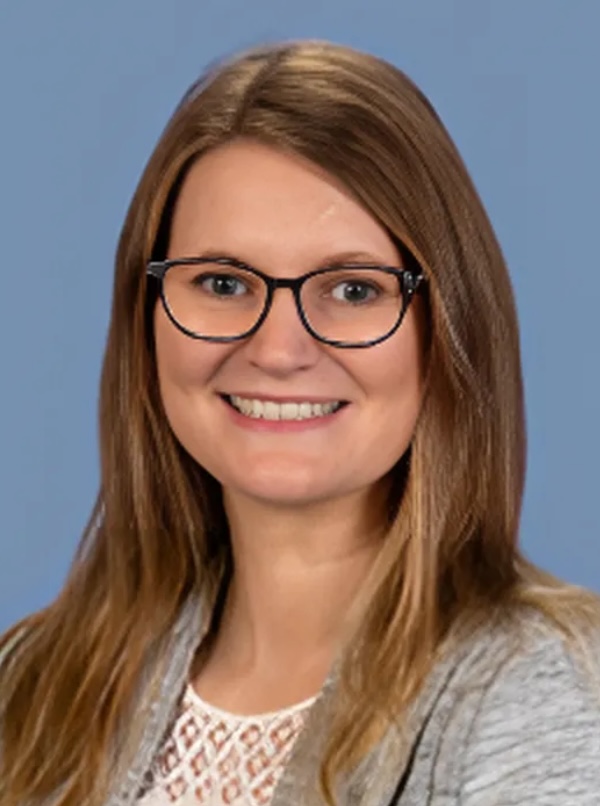Sarah Tomaszewski Farias, Ph.D. is professor and chief of Cognitive Behavioral Division in the Department of Neurology. She is a neuropsychologist with an NIH-funded research program investigating various aspects of cognitive aging including early signs of Alzheimer's disease, the effects of cognitive decline on everyday function, life course sociocultural and lifestyle factors that impact cognitive aging across diverse populations, and the development of behavioral interventions to promote cognitive and emotional health. She serves as the Clinical Core Leader in the UCD NIH-Funded Alzheimer's Disease Research Cener and directs the California Alzheimer's Disease Center of Excellence at UC Davis.
Everyday Cognition and Resilient Aging Lab

-
 Principal Investigator
Principal InvestigatorSarah Tomaszewski Farias, Ph.D.
-
 Principal Investigator
Principal InvestigatorAlyssa Weakley, Ph.D.
Alyssa Weakley, Ph.D., is clinically trained as a neuropsychologist and has research interests in aging and dementia, cognitive rehabilitation and gerontechnology. Recent research endeavors include developing and evaluating compensatory and sensing technology that assists older adults with early-stage Alzheimer's disease as well as their non-residing family caregivers who care for them. She also develops interventions focused on improving caregiving technology adoption and adherence. Weakley is committed to understanding the caregiving and receiving styles and preferences practiced by different cultural and ethnoracial groups to apply these learnings to the tools she develops, since culturally adept, person-centered caregiving tools may lead to better caregiving and downstream health outcomes.
-
Our Research Goals
This lab seeks to understand modifiable psychosocial and behavioral determinants of cognitive health and independence among diverse older adults. A goal is to translate this knowledge into interventions and assessment tools ot support cognition and daily function.
-
Current Projects
Everyday Cognition
Purpose of the study: Functional independence in daily activities among seniors is a key component to emotional well-being while increasing dependence on others is associated with a host of negative outcomes. Our work in this area seeks to identify the cognitive and noncognitive factors (e.g., emotional factors, compensation, physical functioning, overall health) that lead to better everyday functioning. We are also interested in understanding subjective cognitive and functional concerns as an early risk factor for neurodegenerative diseases of aging, and how functional abilities and subjective concerns may vary across different ethnocultural groups. Ongoing work also examines the neurobiological underpinnings of everyday cognition.
Everyday Compensation
Our group has developed novel measures of compensation strategy use among older adults using both questionnaire and observation-based methods. Ongoing research in this area examines the association between these two methods of assessment, how compensation changes over time in relation to cognitive decline, and its impact on the development of cognitive impairment and dementia.
S. POINTER Trial
The S. POINTER Trial is the largest multidimensional behavioral intervention to delay cognitive decline and dementia of its kind. It is funded by the Alzheimer’s Association, and several ancillary studies are funded by the NIH. It is a multisite study that will enroll a total of 2000 older adults at risk for memory loss. The intervention focuses on exercise, diet, cognitive training and management of vascular risks can have a positive impact on cognition.
Interactive Care (I-Care) platform
The Interactive-Care Platform (I-Care) is a web application modeled after an evidence-based cognitive rehabilitation tool for dementia care. I-Care supports everyday independence of individuals with cognitive impairment and enables remote caregiving support through messaging and dual content control. I-Care is supported through a gift endowed to UCD Healthy Aging in a Digital World initiative.
Dementia and Diabetes Prevention Program (DDPP) and The Good Life
Ecological Momentary Assessment of brain heath behavior
Clinical Trials
Learn about the different clinical trials we offer.
Giving
Join us to advance neurological health for all.
Fellowship Programs and Training Opportunities
Learn, grow and collaborate with our renowned researchers.
